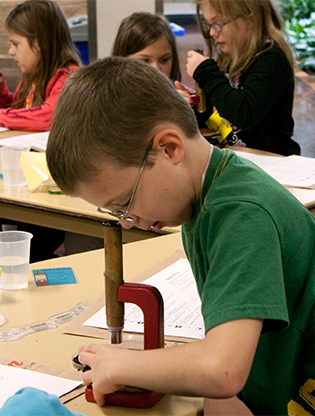
Garden Classes represent our signature experiences for school groups visiting the Garden! Led by our Educators, your students will get their hands dirty learning how plants work, the important roles they play in our environment, and the many ways in which we use plants every day. Each program is designed to engage students with inquiry-based conversations, hands-on experiences and content that strengthen curriculum connections to represent a seamless addition to your existing curriculum.
We offer two types of Garden Classes:
Guided Experiences
Designed for groups seeking an in-depth experience around specific topics. Our experiences couple age-appropriate, outdoor learning experiences led by trained instructors with a theme-appropriate guided tour of the Garden. Program includes a Pot-A-Plant session.
Fee: Standard (up to 30 students): $180. Large (up to 60 students): $360
PLSS (PlantLab Student Scientist) Field Investigations
Dig deeper into plant science in the PLSS Field Investigations designed for grades 3 and up. This program offers students opportunity to explore more rigorous botany and STEM topics with our trained instructors. The program includes a take-home planting activity or project for each student.
Fee: $120 (up to 30 students)
In addition we offer a "By Request" option, where we work with you to design a class that suits your group's needs.